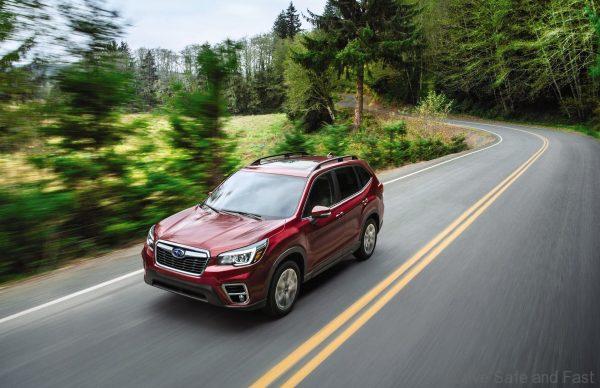Subaru was the only imported car brand to see a sales climb in Germany
Last week on April 3rd 2020 the German Ministry Of Transport released a statement showing how the Corona crisis had resulted in a big decline in car sales in Germany. A drop in demand by 37.7 percent. This sales drop is still not at the height of the crisis and Germany is expected to see a continued sales drop in the coming months.
PRESS RELEASE: The number of new commercial registrations fell by -39.6 percent, their share was 61.9 percent, and private registrations lost -34.4 percent. After the end of the first quarter of the current year, there was an overall decline in new car registrations of -20.3 percent.
The declines in new registrations compared to March 2019 had an impact on all German brands, with the range ranging from -20.7 percent for Mini to -84.4 percent for Smart. VW was the strongest brand with 18.9 percent.

Subaru was the only brand to record an increase in new registrations of import brands at +1.6 percent (share: 0.2%). The declines, which with the exception of Subaru also showed consistently among importers, ranged from -2.8 percent for Lexus (0.1%) to -63.2 percent for Alfa Romeo (0.1%). The largest share of import brands were Skoda (5.6%), Seat (4.2%) and Fiat (3.2%).
With the exception of the motorhomes, the declines were spread across all segments. Only the number of mobile home registrations in March was +2.3 percent higher than in the same month of the previous year and reached a share of 3.2 percent. The compact class was the strongest segment at 21.1 percent, despite the -37.2 percent reduction in unit numbers, followed by the SUVs, which accounted for 20.3 percent with a decrease of -37.5 percent. The registrations of SUVs declined by -26.2 percent, their share was 10.9 percent. With -67.3 per cent of the admission decline in mini fell Vans on out clearly. Their share was 1.2 percent in March.

The alternative drive types sometimes showed three-digit increases compared to the same month in the previous year. Among the hybrids, 28,735 new cars showed an increase of 62.0 percent, including 9,426 plug-in hybrids (+207.9%). 10,329 electric vehicles were registered, +56.1 percent more than in the same month last year. Natural gas-powered cars grew by 8.6 percent to 507 units and reached a share of 0.2 percent. 82 liquefied gas-powered cars, on the other hand, caused a minus of -89.8 percent (share 0.0%). The number of new petrol registrations fell by -48.3 percent, but still accounted for 50.0 percent with 107,507 new cars. 67,937 cars were equipped with diesel fuel. After a decrease of -39.3 percent, they reached a share of 31.6 percent.
The average CO 2 emissions decreased in March by -4.9 percent and stood at 149.0 g/km .
Commercial vehicles saw an increase of +11.8 percent in commercial buses in March, while other vehicles saw an increase of 5.6 percent. There was a drop in registrations for (-26.0%) and tractors (-14.8%), including tractor units (-37.4%), as well as motorcycles (-16.3%).
A total of 271,164 vehicles (-34.7%) and 23,433 vehicle trailers (-29.7%) were newly registered in March.
In the month under review, a total of 536,463 vehicles (-25.8%) and 23,652 vehicle trailers (-32.9%) changed owners.
